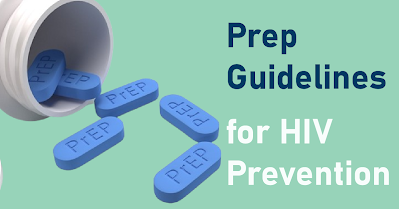What is PrEP?
PrEP, or pre-exposure prophylaxis, is medicine people at risk for HIV take to prevent getting HIV from sex or injection drug use. PrEP can stop HIV from taking hold and spreading throughout your body.
Currently, there are two FDA-approved daily oral medications for PrEP. A long-acting injectable form of PrEP has also been approved by the FDA.
Why Take PrEP?
PrEP is highly effective at preventing HIV when taken as indicated.
PrEP reduces the risk of getting HIV from sex by about 99% when taken as prescribed. Among people who inject drugs, it reduces the risk by at least 74% when taken as prescribed. PrEP is much less effective when it isn't taken consistently.
How well does PrEP work?
Oral PrEP is most effective when taken consistently each day. CDC reports that studies on PrEP effectiveness have shown that consistent use of PrEP reduces the risk of getting HIV from sex by about 99% and from injection drug use by at least 74%.
Currently, Apretude shots are not recommended for people who inject drugs. Descovy is not for use in people assigned female at birth who are at risk of getting HIV from vaginal sex, because its effectiveness has not been studied.
Adding other prevention methods, such as condom use, along with PrEP can further reduce your risk of getting HIV.
What Drugs Are Approved for PrEP?
PrEP can be pills or shots.
There are two pills approved for daily use as PrEP. They are combinations of two anti-HIV drugs in a single pill:
- Truvada® (emtricitabine/tenofovir disoproxil fumarate) is for all people at risk for HIV through sex or injection drug use. Generic versionsExit Disclaimer are also available.
- Descovy® (emtricitabine/tenofovir alafenamide) is for sexually active men and transgender women at risk of getting HIV. Descovy® is not for people assigned female at birth who are at risk for HIV through receptive vaginal sex.
- A long-acting injectable form of PrEP has also been approved by the FDA:
- Apretude® (cabotegravir) is for people at risk for HIV through sex who weigh at least 77 pounds (35 kg). It’s an injection given by your health care provider every other month instead of daily oral pills.
How Do You Get PrEP?
If you think PrEP may be right for you, visit your doctor or health care provider. PrEP is only available by prescription. Any health care provider licensed to write prescriptions can prescribe PrEP; specialization in infectious diseases or HIV medicine is not required.
Because PrEP is for people who are HIV-negative, you’ll have to get an HIV test before starting PrEP and you may need to get other tests to make sure it’s safe for you to use PrEP.
If you take daily oral PrEP, you’ll need to see a health care provider every 3 months for repeat HIV tests, prescription refills, and follow-up. If you use injectable PrEP, you’ll need to see a healthcare provider every two months for an HIV test and the injections.
Is PrEP Covered by Insurance?
In most cases, the cost of PrEP medication and services are covered by insurance.
Under the Affordable Care Act, PrEP is free under almost all health insurance plans. PrEP is a preventive service and should be covered without charging you a co-payment or co-insurance. This is true even if you haven’t met your yearly deductible. That means you can’t be charged for your PrEP medication, the clinic visits to see your health care provider, and lab tests you need to get and maintain your prescription.
Conclusion
PrEP plays a crucial role in HIV prevention by providing individuals with an effective tool to reduce their risk of infection. By taking a daily pill containing antiretroviral drugs, individuals can significantly lower their chances of contracting HIV and take control of their sexual health. It is important for individuals at high risk of HIV exposure to consider incorporating PrEP into their preventive healthcare routine to stay healthy and protect themselves and their partners.

